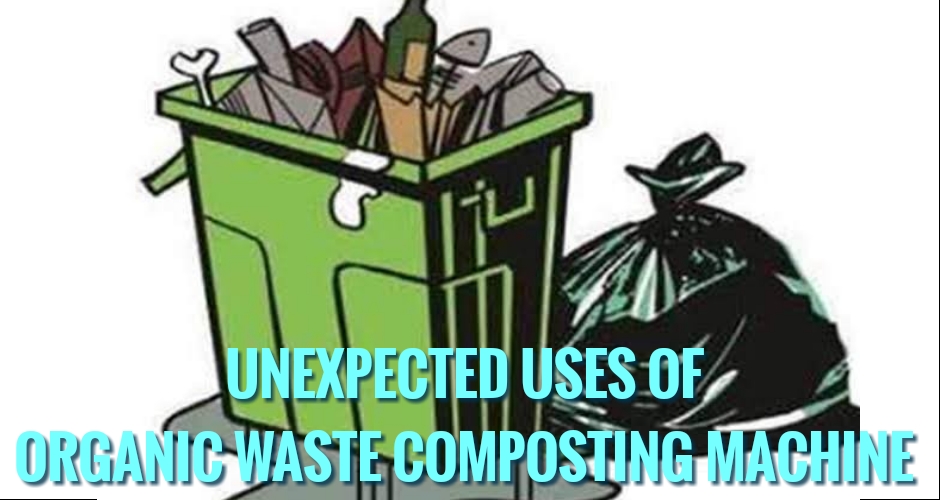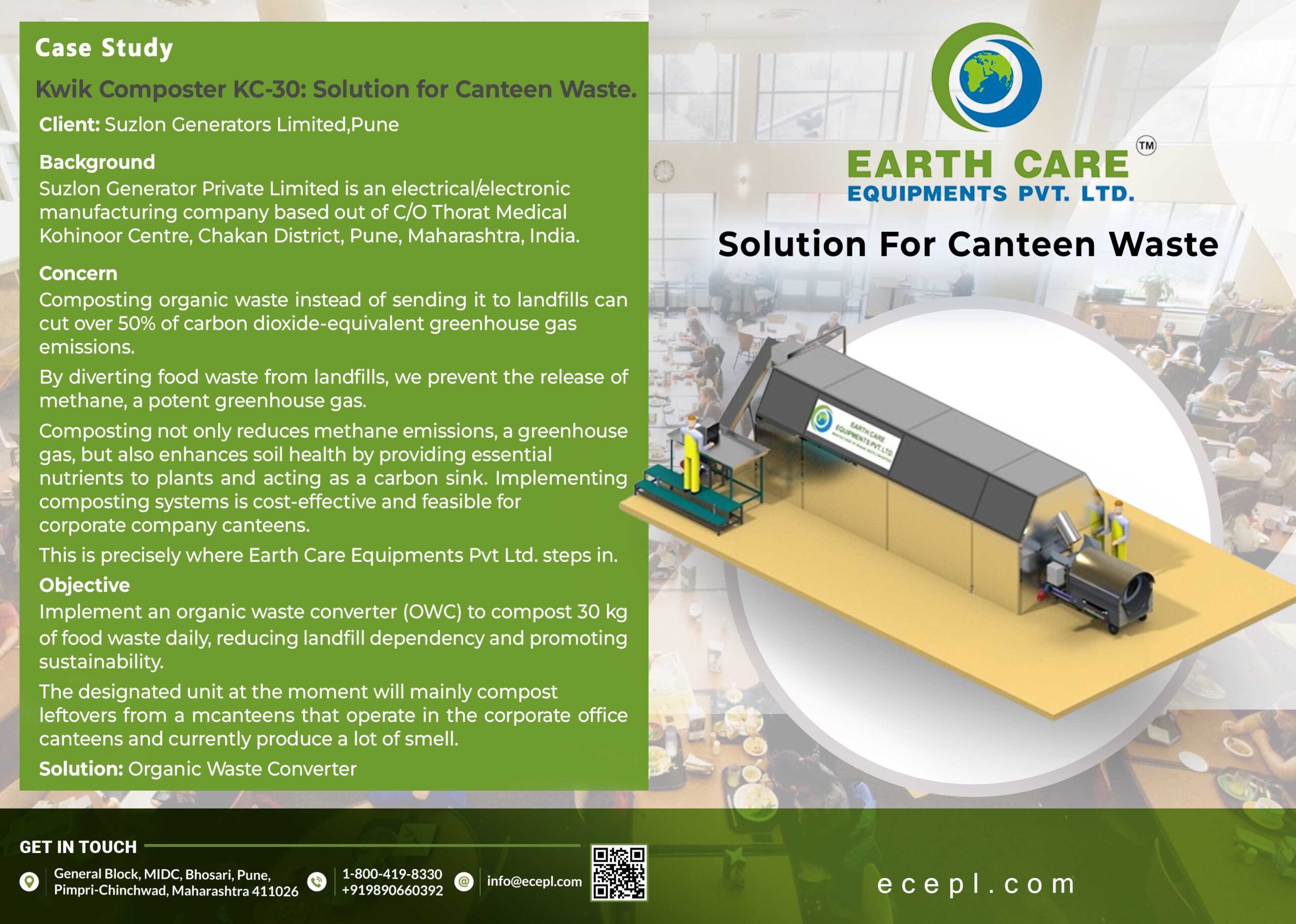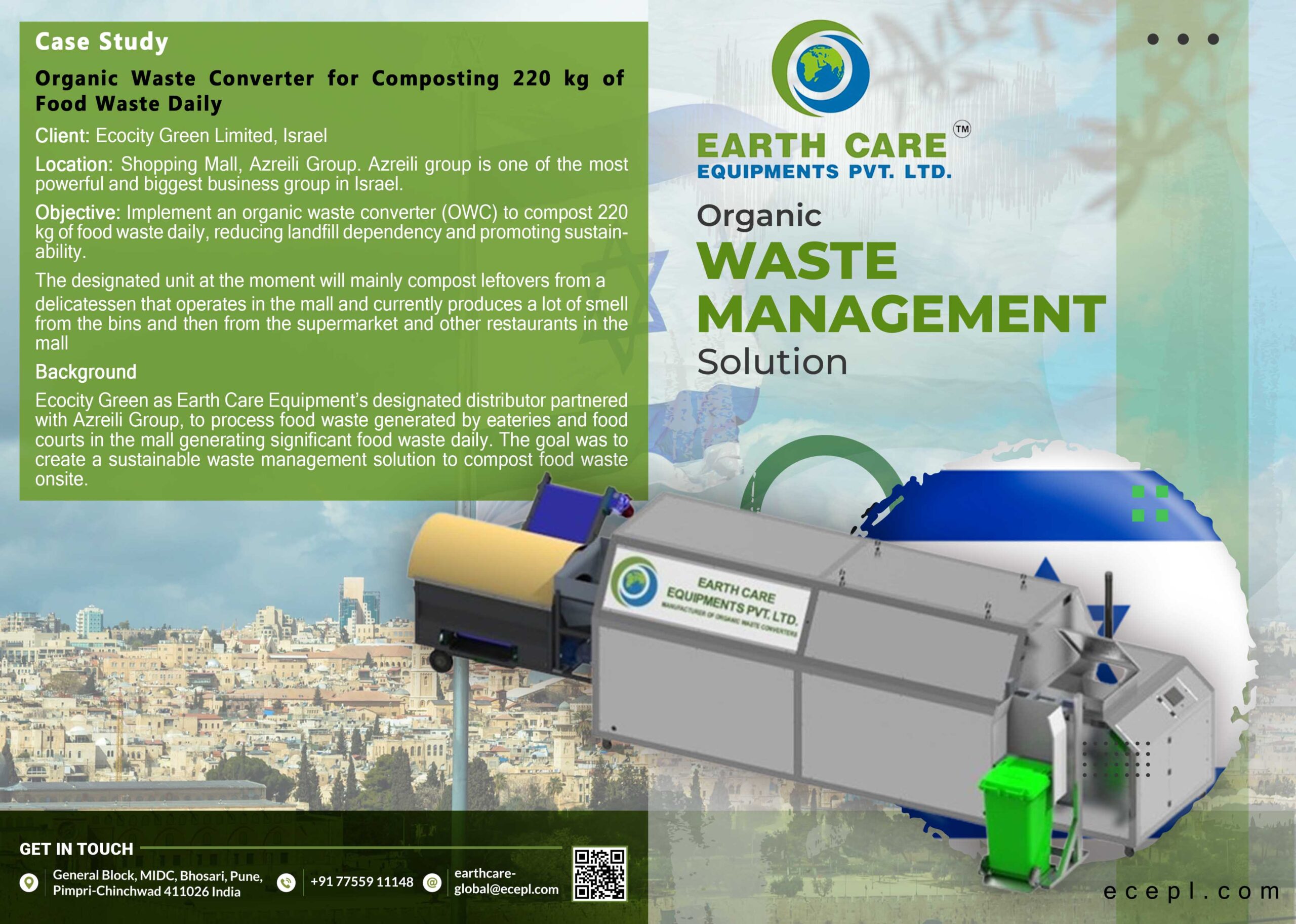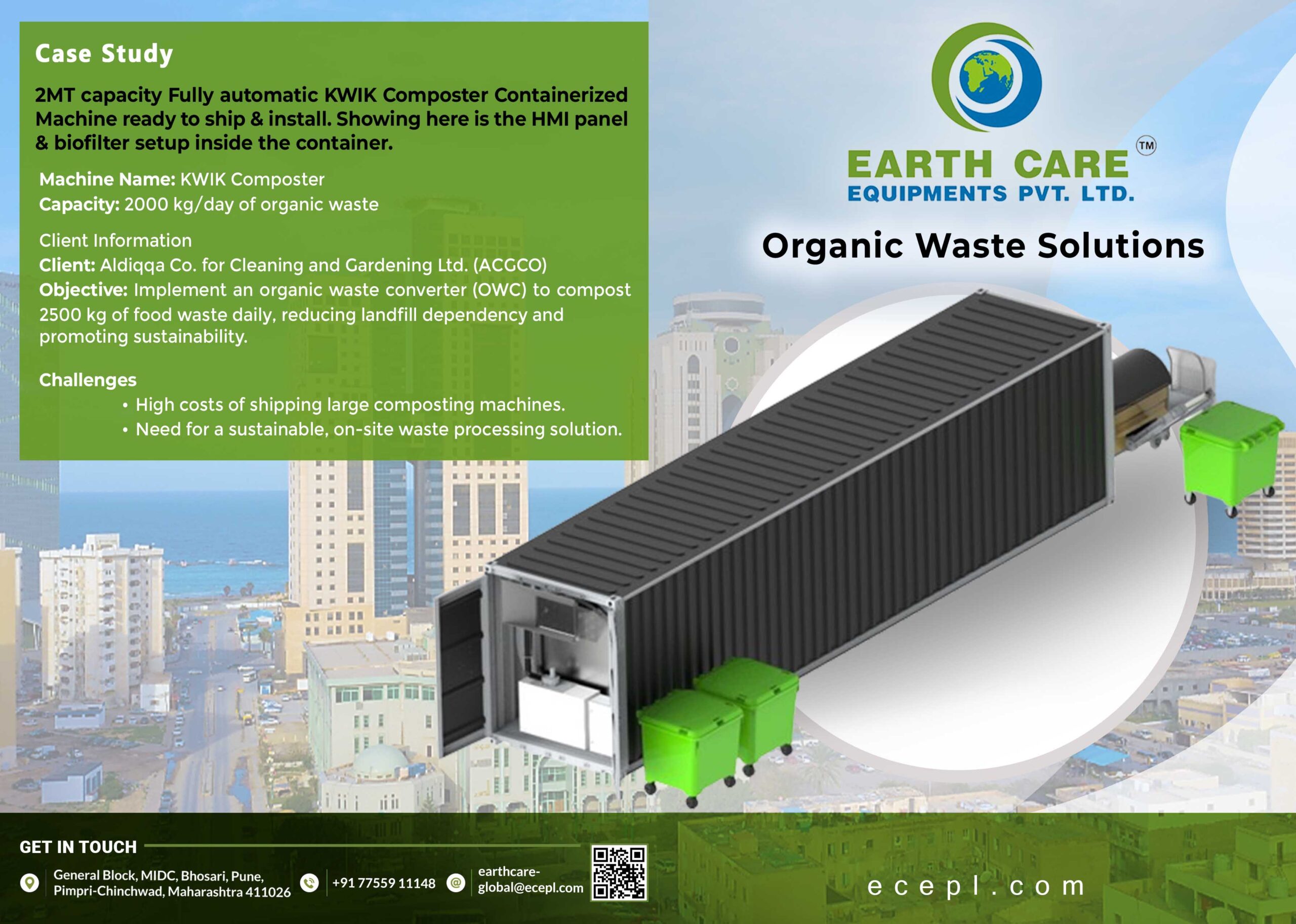
When Earth Care Equipments Pvt. Ltd developed the idea of an organic waste composting machine, its focus was on providing organic waste composting solutions. It probably had no idea that the end product would have several other unexpected uses. Now, the company can pride itself with multi-purpose organic waste machines.
You can liken this company with someone who is able to kill several birds with only one stone. This in itself demonstrates a high level of efficiency in their endeavor.
Earth Care Equipments Pvt. Ltd offers two variations of composters: Kwik composters with composting capacity ranging from 50 kgs per day to 2000 kgs per day and Kwik composter accelerator with composting capacity ranging from 30 kgs per day to 1000 kgs per day.
In addition to these two, the company also has RTCT large scale municipal solid waste processing plant with a processing capacity of between 5MT to 25MT solid waste per day, and which is more energy efficient. An organic waste composting machine is primarily intended to facilitate the breaking down of organic waste by micro-organisms, so that it can decompose to valuable plant nutrients called humus.
The innovation of the composters resulted in the following 15 unexpected uses: –
Waste segregation-:
Segregation of organic waste happens before the actual composting process. It is one of the initial preparatory activities. The machine segregates organic waste so as to ease the work of composting and successfully managing the waste through all the processing stages. The biodegradable waste is usually segregated into wet waste and dry waste. Dry waste does not degrade as fast as wet waste. Their treatment procedures therefore vary.
Waste Shredding-:
Shredding is one of the initial stages in the processing of organic waste. A shredder is one of the accessories of an organic waste composting machine. This equipment crushes the organic waste, thus reducing their particle size to about 8mm to 10mm. The shredder, also called crusher can process organic waste such as vegetable waste, fruits and fruit skins, leaves and tree branches, temple waste, cooked or uncooked meat among other types of acceptable organic waste.
There are different types of food waste and garden waste shredders with varying shredding capacities. There is a Kwik shredder with a 300 kgs/day processing capacity and a Kwik shredder with a 600 kgs/day processing capacity. A good shredder is one with a high crushing efficiency. Advanced shredders such as ZAP can also be used for dewatering. The shredding of the organic waste facilitates its handling and processing convenience.
Waste dewatering-:
After shredding the organic waste, the shredder then dewaters the organic waste material so as to dry it up and to reduce its volume significantly by up to 80%. It creates odourless organic waste which is further composted.
Air/Bio Filtration-:
After the machine has segregated the biodegradable organic waste, both aerobic (with oxygen) and anaerobic (without oxygen) processes occur. These processes produce complex mixture of odourous gases that pollute the environment. In order to deal with this nuisance, a molecular filtration process is necessary.
The organic waste composting machine helps to do this filtration. It has a suitable exhaust blower with an activated carbon filter fitted to the machine for this purpose.
Leachate extraction and treatment-:
The leachate generated by wet organic waste certainly poses a major problem to the environment. The organic composting machine is also designed to perform the work of leachate extraction and treatment. Apart from facilitating the flow of excess liquid in the waste, it treats it by extracting dissolved and suspended matter from it.
There are two primary types of leachate treatment technologies namely biological treatment and chemical treatment. However, the two systems may be integrated.
Waste conversion-:
The organic waste composting machine can convert organic waste into compost. This conversion happens when micro organisms feed on the waste materials and in the process convert them into compost otherwise called humus. The machine is innovated with a micro-organism based technology which is proven to be reliable and sustainable.
Waste volume reduction -:
Since the machine is designed to effectively decompose organic waste, the volume of the output, which is in the form of compost, is reduced by about 80% of the original input material.
Production of valuable nutrients-:
In the process of converting organic waste into compost, the machine produces nitrogen alongside other valuable nutrients such as potassium and phosphorus. These add to the fertility of the soil and thus enable plants to flourish.
Cleaning up the environment-:
The organic waste composting machine also helps in cleaning up the environment. Its functioning is such that it is silent and its output is free from any offensive odour. The availability of the machine implies that there will be better cabbage management solution in hotels, hospitals, educational institutions, industries, municipalities, and the society at large.
People will be busy clearing and composting the cabbage, and they end up with a clean and conducive environment. The compost produced by the machine fertilizes the soil. There wouldn’t be any need to introduce chemical fertilizers. This is why the machine is recommended by MOEF and Environment Clearance Committee.
Production of fertilizer-:
The organic waste composting machine produces organic fertilizer for your garden. It makes the soil rich by introducing nitrogen and other nutrients that boost the growth of your plants. So, every time you require improving the quality of your garden, you don’t need to use chemical fertilizers because they pollute the environment. You would rather resort to compost.
Waste Mixing-:
Proper mixing and piling of organic waste materials, with water and air promotes the process of decomposition. It facilitates both the aerobic and the anaerobic processes that create compost. For continuous composting to occur in an organic waste composting machine, the activity of organic waste mixing also has to be continuous.
The machine is fitted with blades that facilitate even mixing of the waste before it is composted. It is an important function that the users of the machine do not ordinarily expect.
Maturing And Curing-:
After the organic waste composting machine has produced the compost, it continues automatically with the work of maturing and curing it. The compost which is collected in the trolley placed underneath the organic waste composting system is shifted in a drum adapted appropriately to facilitate maturing and curing. These two unexpected uses of the organic waste composting machine help in stabilizing the compost.
Creation Of Ambience-:
Organic waste can certainly have an awful smell. This is bound to spoil the ergonomics of the immediate environment. The organic waste composting machine creates ambience by converting raw organic waste into sweet smelling compost at the rear end of the machine.
Conservation Of Energy-:
This is usually possible with organic waste composting machines without heaters. Their electricity consumption is minimal. It is also worth noting that the composter largely functions with the help of a biological process that converts raw organic waste to compost. Electric power is needed at few instances where particular accessories are used to facilitate such activities as shredding, blowing, and curing. Ultimately, demand for electric energy is low.
The RTCT is among the most energy-efficient large-scale solid waste processing plants.
Reducing Costs-:
It is worth noting that the organic waste composter works faster than other machines of the same class. It is therefore a time saver during the process of composting. Also, the machine economizes space and its operating costs are comparatively lower. Some of the machines do not use heater based systems. Their power cost is thus low.
The re-engineering of the machine for purposes of large scale composting is an effort that contributes further to reduction in cost. The system is energy-efficient and it does not need agitation, bio-filtration or heat from an external source.
Ordinarily, people need the organic waste composting machine primarily for the purpose of converting their raw waste to compost. Fortunately for them, the machine is designed in such a way that it has many other multiple unexpected uses like as enumerated above. The unexpected uses range from those relevant to an individual to those relevant to the society at large.
The unexpected uses are distributed at various stages of the composting process. Right from segregation, shredding, dewatering, filtering, and leachate management, all the way to mixing and curing of the compost. This is probably why the list of satisfied clients is growing longer by the day. Analyzing from their feedback comments, it is clear that the organic waste composting machine serve them well.




